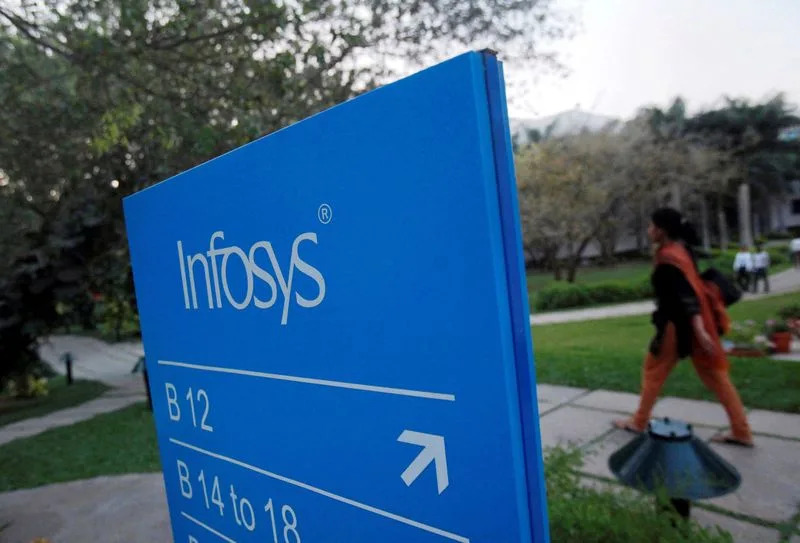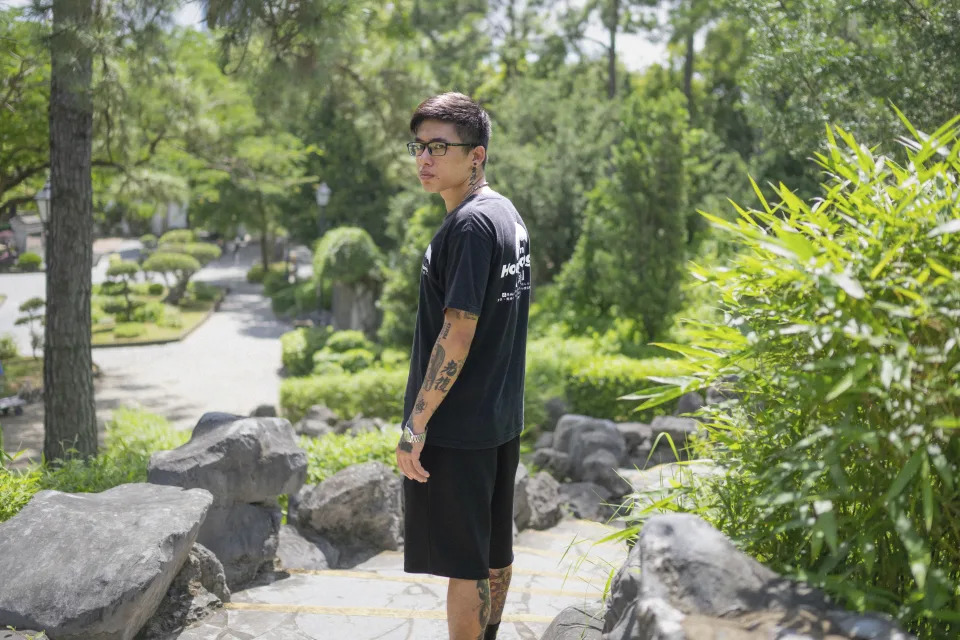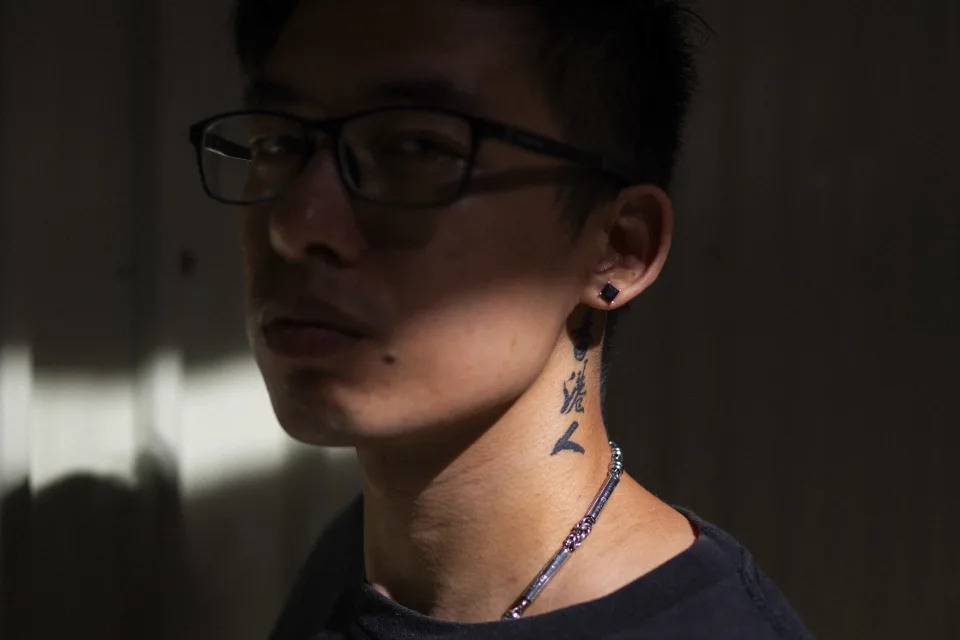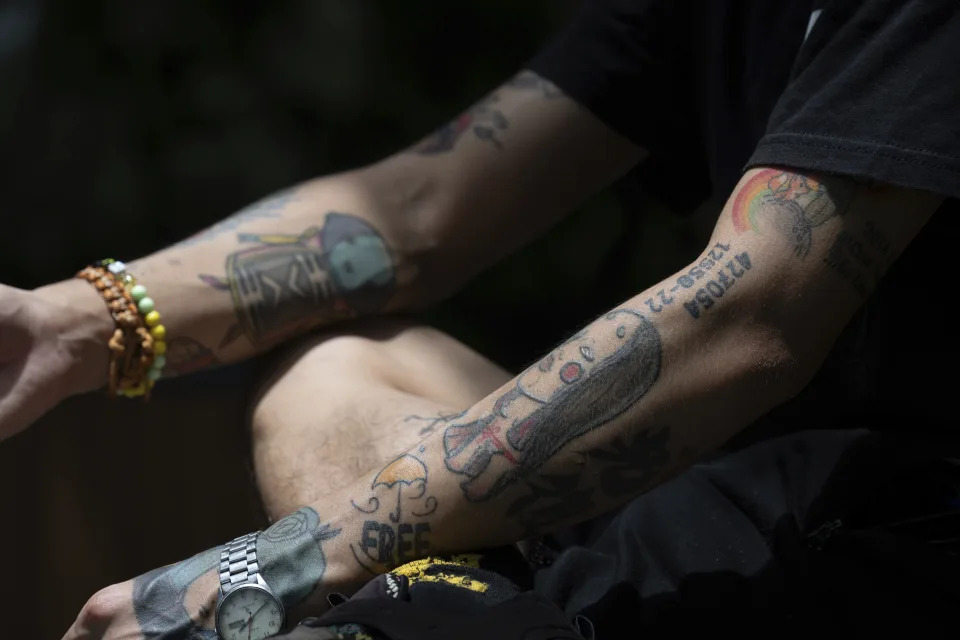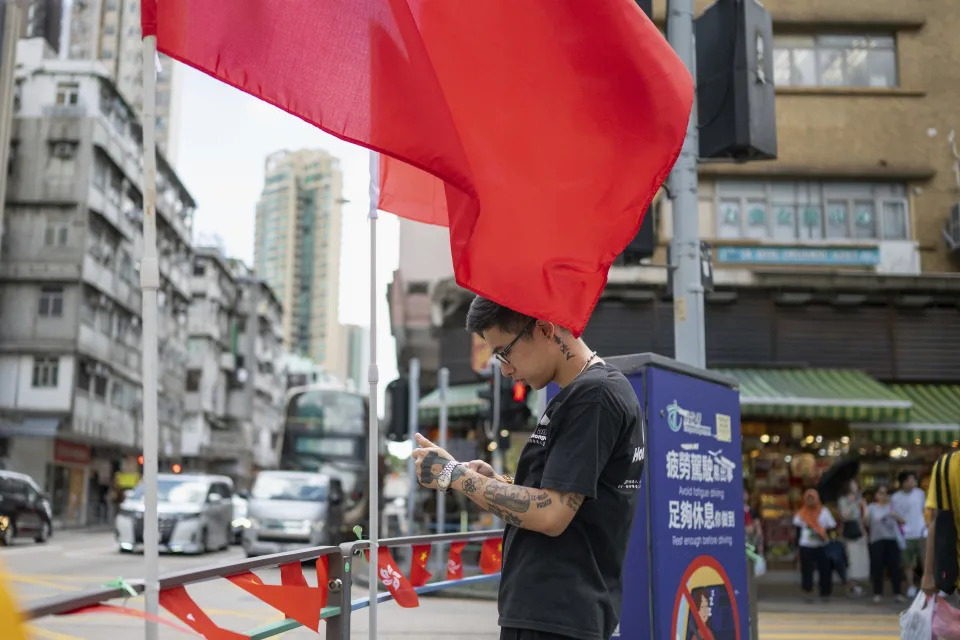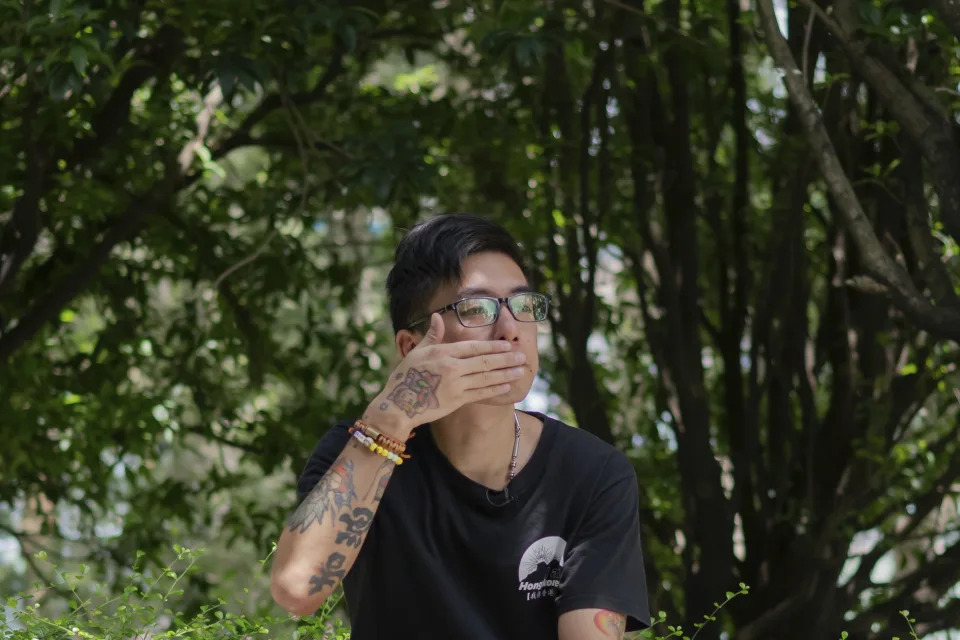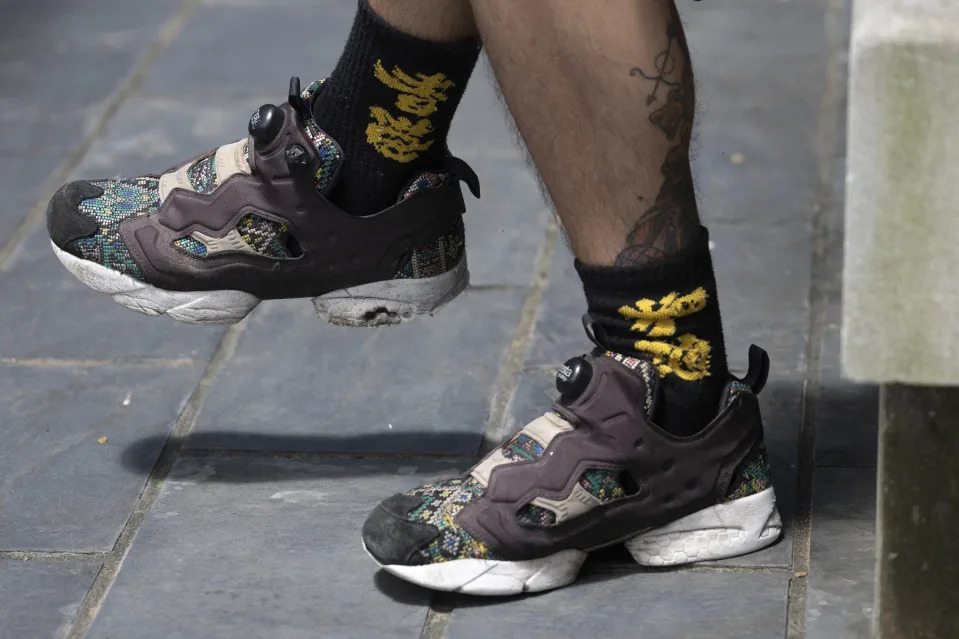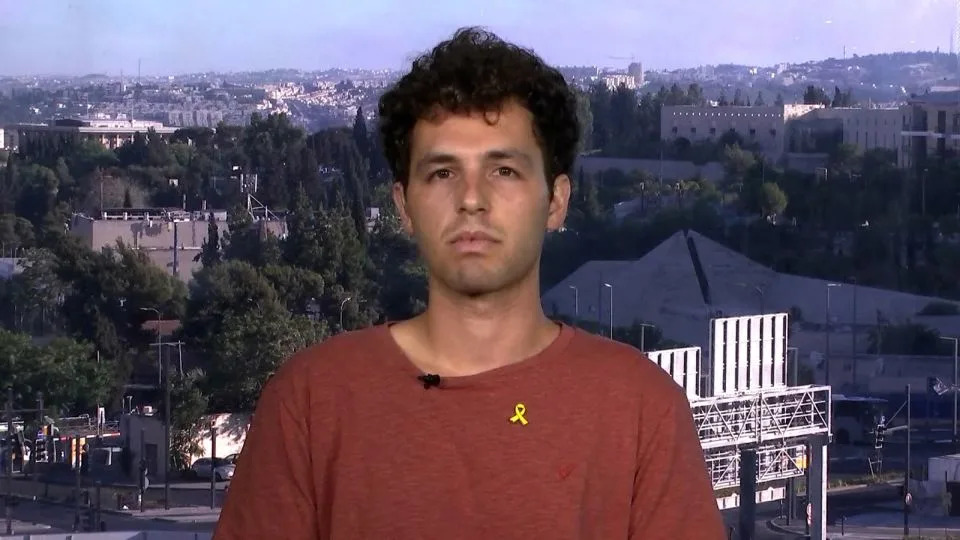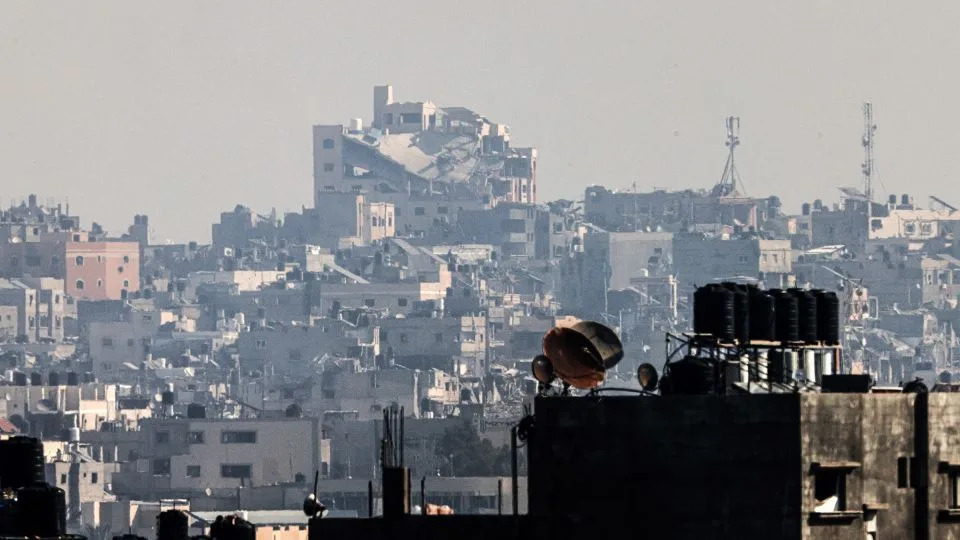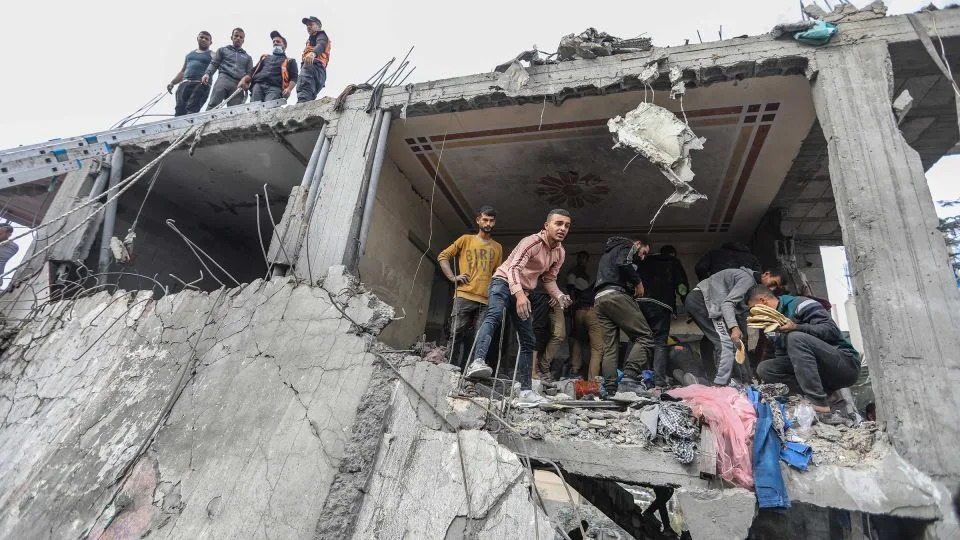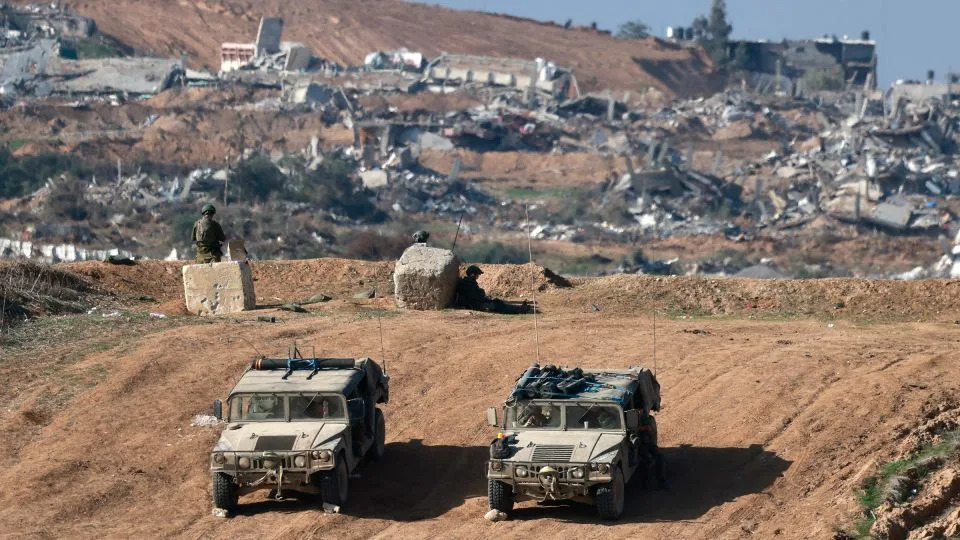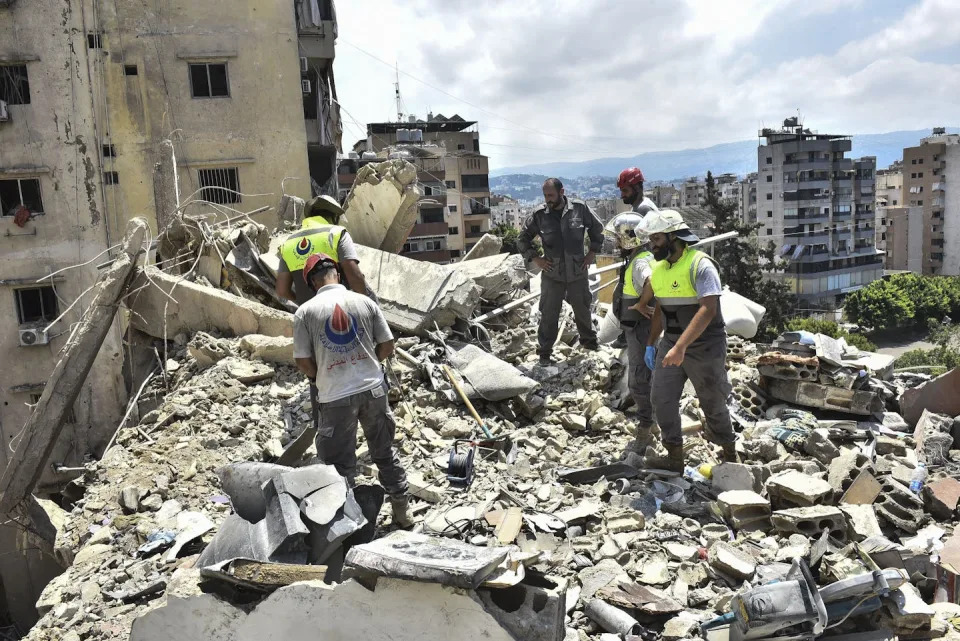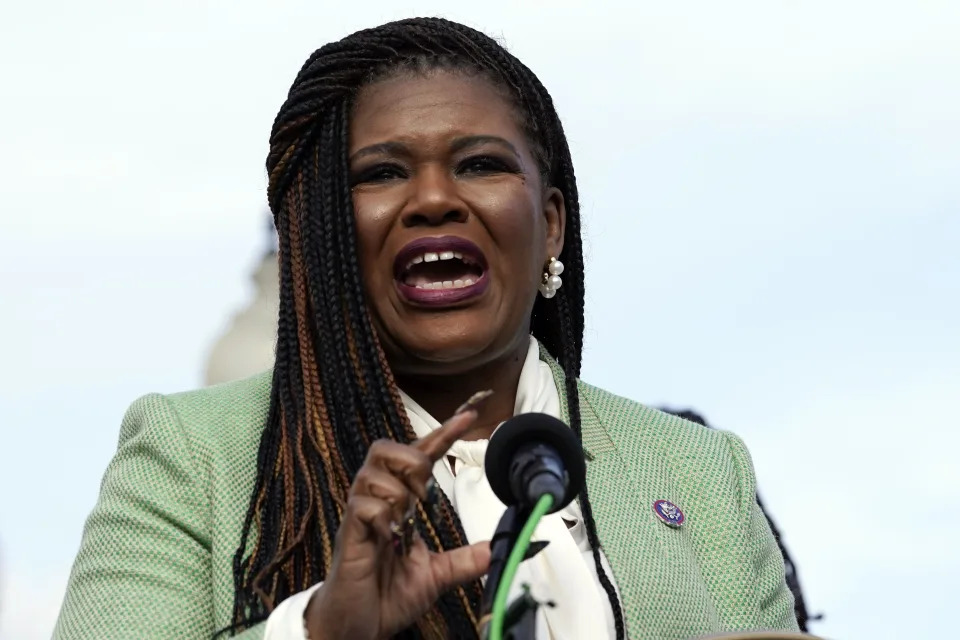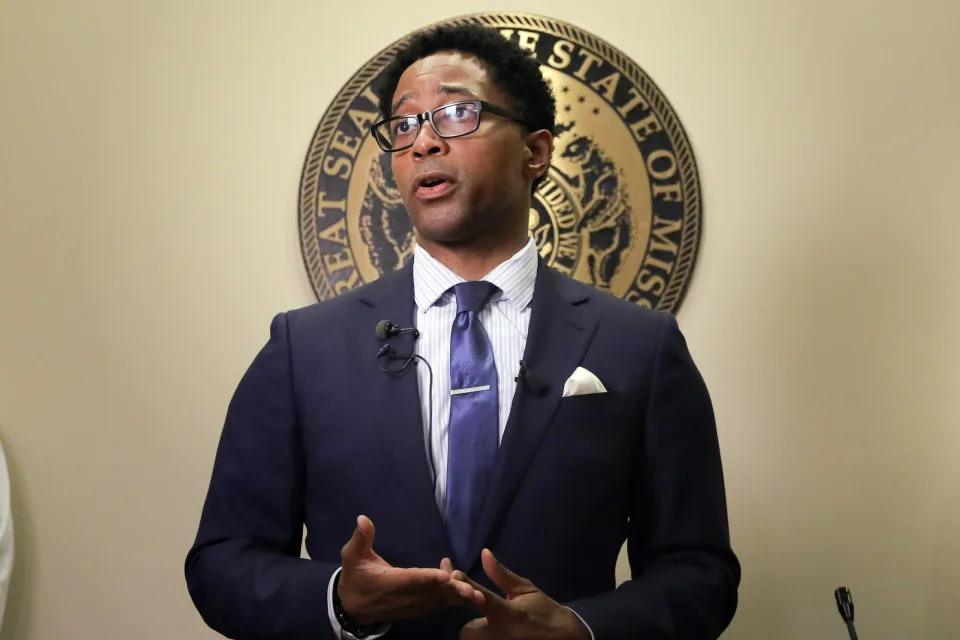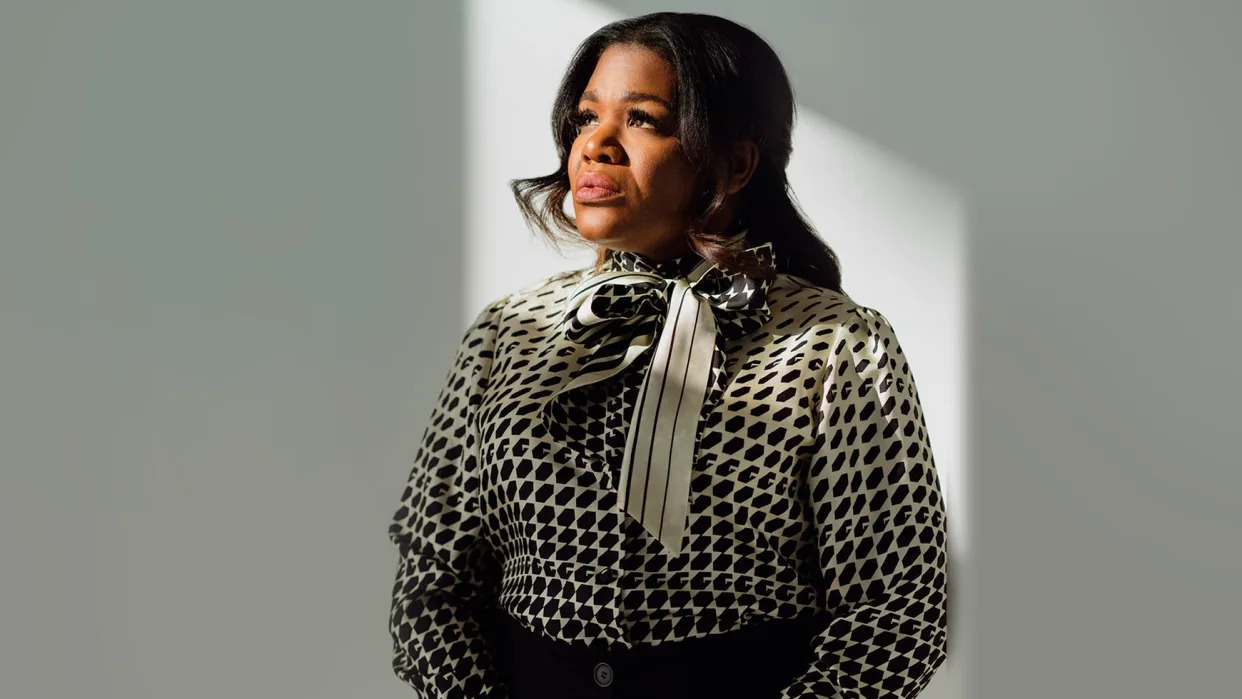Emily Cochrane
Thu, August 1, 2024
Community members gathered to denounce neo-Nazi activity and antisemitism at Bicentennial Capitol Mall in Nashville this month.
NASHVILLE, Tenn. — They first arrived at the beginning of July: dozens of masked white supremacists, shuffling out of U-Hauls, to march through Nashville, Tennessee, carrying upside-down American flags.
A week later, members of a separate neo-Nazi group, waving giant black flags with red swastikas, paraded along the city’s famed strip of honky-tonks and celebrity-owned bars. The neo-Nazis poured into the historic Metro courthouse to disrupt a City Council meeting, harassed descendants of Holocaust survivors and yelled racist slurs at young Black children performing on a downtown street.
The appearance of white nationalists on the streets of a major American city laid bare the growing brazenness of the two groups, the Patriot Front and the Goyim Defense League. Their provocations enraged and alarmed civic leaders and residents in Nashville, causing the city to grapple with how to confront the groups without violating free speech protections.
Sign up for The Morning newsletter from the New York Times
“I can’t imagine having a mimosa on Fifth and Broadway, and 400 Patriot Front members walk out of a U-Haul — it has to be one of the most jarring experiences as an American and as a tourist in the city,” said state Rep. Aftyn Behn, who represents the city’s downtown. “Nashville is a microcosm of the greater country, and we are at a moment where we have to decide who we are.”
Both of the groups that visited Nashville this summer have become more visible since the 2017 “Unite the Right” rally in Charlottesville, Virginia, and are now among the top sources of white supremacist propaganda. At the same time, the leadership of the other far-right groups such as the Proud Boys has been disrupted by prosecutions over their involvement in the Jan. 6, 2021, riot at the Capitol.
White supremacists have appeared in Nashville before and have increasingly promoted racist and antisemitic messages across the country. Those include plotting to riot at a Pride event in Idaho, disrupting city council meetings in New England and protesting at the opening New York performances of “Parade,” a musical about the 1915 lynching of a Jewish man in the South.
“What I would characterize this as is terror tourism,” Mayor Freddie O’Connell said in an interview. He recalled how his maternal grandfather, whose father was an Orthodox rabbi, and his siblings fled Poland as antisemitism began to take hold in Europe before the Holocaust.
Of the white supremacist groups, he said: “These are mostly people from out of area, coming in here mostly to disrupt and use hate speech as an act of terror, and it’s very difficult to prevent them from doing so.”
Police said that at least one of the groups had been traveling to Nashville from a rental property in Kentucky. But the repeated incidents have also prompted an uncomfortable debate about why white supremacist groups feel comfortable parading through a city that has labored to highlight its vibrant music legacy and rapid growth.
Nashville, the site of multiple civil rights monuments and a short drive away from Civil War battlefields, is no stranger to the strains of white supremacy. White supremacist groups have repeatedly emerged in the past year, confronting supporters of gun control laws last year and rallying in the city in February.
Several residents and Democratic lawmakers accused the state’s ultraconservative Republican supermajority, as well as a recent influx of far-right political figures and commentators, of fueling the rise of hate groups by championing anti-LGBTQ+ legislation and targeting diversity initiatives.
Gov. Bill Lee, a Republican, issued a video statement broadly condemning antisemitism in July, while a member of the state’s Republican leadership, William Lamberth, sponsored a resolution condemning neo-Nazism in February.
“This state actually respects freedom of speech,” one member of the Goyim Defense League told Phil Williams, a local television journalist, when asked why they had chosen to come to Nashville. Outside a weekend counter-rally hosted by the Jewish Federation of Greater Nashville, a half dozen neo-Nazis appeared to revel in the outrage, filming themselves doing Nazi salutes and heckling attendees.
“We’re having a good time out here,” one man could be heard saying. “Are we welcome?”
Many residents called on the city to do more to prevent the return of the groups, amid fears of an escalation tied to the presidential election in November.
“It makes me not want to live here,” said Carly Wasserman, 27, who attended the rally in a sleeveless tank top, revealing an arm of flower tattoos mirroring the ones her grandfather got to cover up his concentration camp number. She added, “There’s freedom of speech, and there’s hate speech.”
City officials said they were reviewing ordinances related to face coverings, littering and permit requirements for parades, as well as consulting a First Amendment expert to ensure that any crackdown would withstand a legal challenge.
The white supremacist groups, city officials said, strategically navigate city regulations to avoid arrest or police interference. Often, they are penalized with littering citations for distributing antisemitic pamphlets; in one instance, a leader of the Goyim Defense League spent a few weeks last fall in a Florida jail.
Metro Nashville Police have monitored the groups, including when members have shouted at boys drumming on buckets downtown. Body camera footage shows one officer repeatedly telling the men, “They’re kids,” as the children, yelling back, walked away.
O’Connell and police officials have also pleaded with residents to resist the urge to engage with the groups. A Canadian man remained in jail this week, after the police said he used a Nazi flag to pummel a bartender who had confronted members of the Goyim Defense League. (The bartender also faces a misdemeanor charge for his role in the fray.)
Without broader legal recourse, Nashville leaders and residents have moved to condemn the groups and confront the white supremacists when given the chance.
“The First Amendment is not an excuse or a technicality or a loophole to utilize, to harass, to intimidate, to instill fear in people,” Jacob Kupin, a councilmember, said. “The best response we have in our tool kit is to speak louder and more boldly and send the message that hate has no place in Nashville,” he said.
When the group filed into a Metropolitan Council meeting in July — another preferred tactic of disruption — they began confronting attendees and heckling speakers. When Kupin spoke about his pride in his Jewish faith and how his grandfather had liberated a concentration camp, the group booed him, he said.
Councilmember Zulfat Suara also condemned the group’s interruptions, to jeers. Sulfat, who was presiding over the chamber at the time, soon ordered the police to clear the room.
Suara, who wears a hijab and has been subject to threats as the city’s first Muslim councilmember, later said she had briefly debated openly acknowledging the neo-Nazis. But, she said in an interview, she reflected on the work of the city’s civil rights leaders.
“I cannot be honoring them and their legacies and talking about them and then be a coward and not be able to speak up when I have the opportunity to,” she said. “I needed to let them know where we stand as a city.”
On Saturday, a group of Black Nashville residents stood downtown in support of the young children who had faced racist vitriol from the group and to voice frustration with what they felt was an uneven treatment by the police. Amplified by a megaphone, their chants reverberated over passersby on their way to a Bitcoin conference, tourists headed to the Country Music Hall of Fame and bachelorette parties wheeling by.
Robert C. Sherrill, a business leader and youth advocate who lives in North Nashville, took the bullhorn and asked, “What are we doing, America?”
c.2024 The New York Times Company
